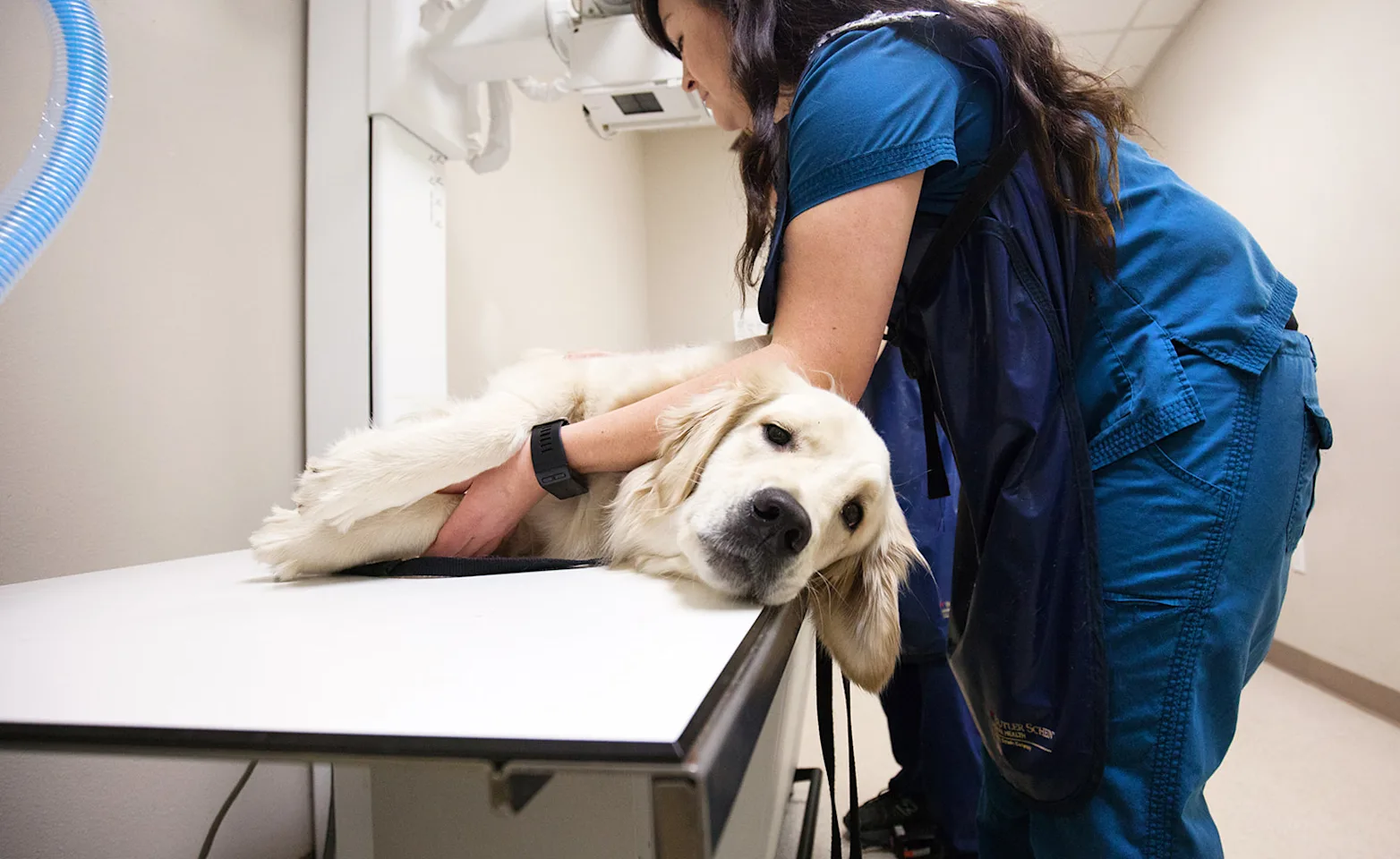Summit Veterinary Referral Center

About Our Department
Diagnostic imaging (radiographs, ultrasound, CT, MRI, fluoroscopy) is a critically important core service at Summit. Having radiologists onsite helps us explore options for imaging so we can select the right test for each pet, perform imaging-assisted sampling, and monitor chronic conditions over time.
While every veterinarian receives training for interpretation of diagnostic imaging such as radiographs (x-rays), and many specialists across the country are accustomed to interpreting their own specialized imaging studies (such as CT or MRI), our on-site radiologists play a key part in ensuring your pet receives the most specialized, personalized care. Diagnostic imaging (radiographs, ultrasound, CT, MRI, fluoroscopy) is a critically important core service at Summit. Having radiologists onsite helps us explore options for imaging so we can select the right test for each pet, perform imaging-assisted sampling, and monitor chronic conditions over time.
Additional Information
Tests Offered
Our radiology team is capable of running a variety of different tests and procedures that may shed light on the health problem your pet is dealing with. We aim to stay on the forefront of a constantly advancing field of veterinary medicine. Our facility is equipped with top-of-the-line technologies to best serve you and your pet.
X-rays: This test can be used to evaluate for musculoskeletal abnormalities (fractures, joint swelling), lung abnormalities (pneumonia, congestive heart failure, cancer) and evaluate for abdominal organ enlargement and gastrointestinal abnormalities.
CT Scans: CT scans are often used to diagnose abnormal blood vessels in the liver, for diagnostic purposes and surgical planning of diseases in the chest and abdominal cavity, to aid in the diagnosis of orthopedic disease, and to further evaluate nasal disease.
MRIs: MRIs show detailed views of the brain and spine and are most commonly used to evaluate for intervertebral disc disease, congenital abnormalities of the spine and brain, and inflammation, infection, or cancer in the spine or brain.
Ultrasounds: Most commonly used to evaluate for chronic diseases of the abdominal organs or acute conditions such as vomiting or abdominal pain. Ultrasound can also be helpful in screening patients for cancer and allows for guided sampling of organs and lymph nodes.
Common Diagnoses
Veterinary radiologists are not commonly involved in the treatment of pets, but they are vital to accurately and rapidly diagnosing health problems. The following list, while not exhaustive, details issues that our radiology team can aid in identifying.
Broken bones: X-rays and other tests can identify any fractures or breaks affecting an animal.
Cancer: Diagnostic imaging can determine the location and severity of tumors and masses.
Heart disease: The heart’s health can be monitored by tests that show its size and any irregularities present.
Respiratory illness: Some procedures can show any issues, fluids, or abnormalities in the lungs and airways of an animal.
Pregnancy: Ultrasounds are useful in tracking the health of a pregnant animal and its babies.
The veterinary radiology team at Summit can aid in diagnosing any health problem that your pet may be currently facing. If you have any questions about the imaging tests we provide, our office is happy to assist you.



